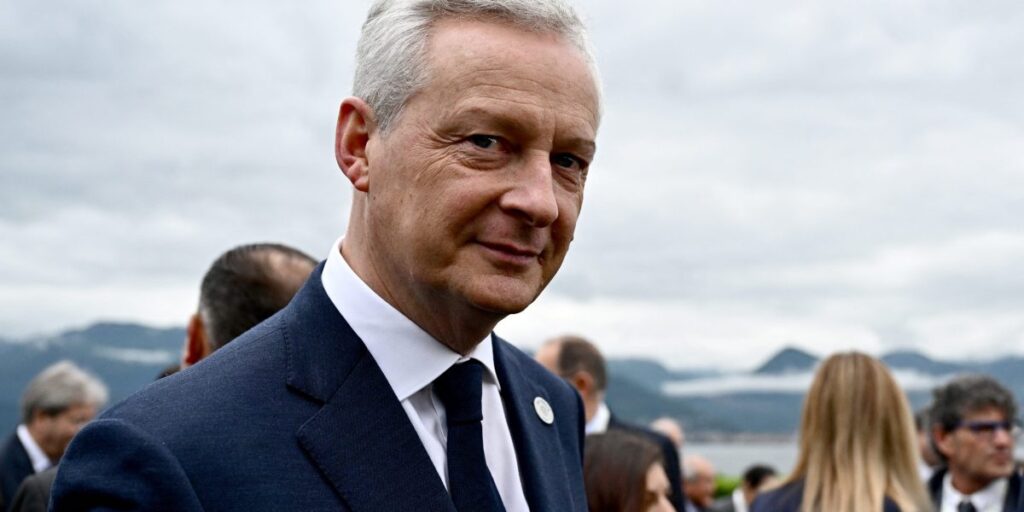
French Finance Minister Bruno Le Maire said the entire world economy was at risk from a glut of cheap Chinese exports, while the Group of Seven nations issued a series of joint criticisms.
“There is a problem with our economic model, which is that China is producing increasingly cheaper industrial equipment, because this is a threat not only to the EU, the United States, but to the global economy,” Le Maire said in an interview with Bloomberg TV. “We need to solve this problem.”
Major industrialized countries are joining forces to mount a tougher, more united challenge to China’s overcapacity, which they say threatens their domestic manufacturers.
The country was mentioned by name at a meeting of G7 finance ministers in Tresa, Italy, as they agreed to “address harmful practices” and “consider measures to ensure a level playing field”. The words mark an upgrade from the sparse and more neutral trade language that is their standard use in communiqués.
Their announcement came after Washington announced on Friday that President Joe Biden would reimpose tariffs on hundreds of goods imported from China. Meanwhile, the EU’s electric vehicle subsidy investigation is coming to an end, which could lead to defensive measures against Chinese auto exports.
Potential EU tariffs are expected to be significantly lower than those of the United States and are based on a different approach within World Trade Organization rules and procedures.
Le Maire said at the G7 meeting that member states need to strengthen information exchange and establish a common assessment of China’s industrial practices. Nonetheless, he insisted that the EU had all the necessary tools to re-establish a level playing field.
“Make no mistake about the determination of EU countries and the determination of France,” Le Maire said.
Artificial Intelligence Cooperation
The French minister said he was seeking to preserve the fruits of years of government policy and investment to build up his industrial and technology sectors.
A key priority is artificial intelligence, where France intends to maintain its leadership position in Europe. This has attracted foreign capital, with Microsoft this month announcing a €4 billion investment in French cloud and artificial intelligence infrastructure. Paris-based Mistral AI also announced a partnership with Microsoft in February.
Asked whether national censorship rules could be used to prevent foreign investors from taking over French tech companies, Le Maire said the focus was now on strengthening cooperation, not blocking it.
“We will see what cooperation options there are between Mistral and Microsoft,” Le Maire said. “Currently, Microsoft is investing in France and opening data centers in France. Microsoft’s investment in France is the most popular.”

